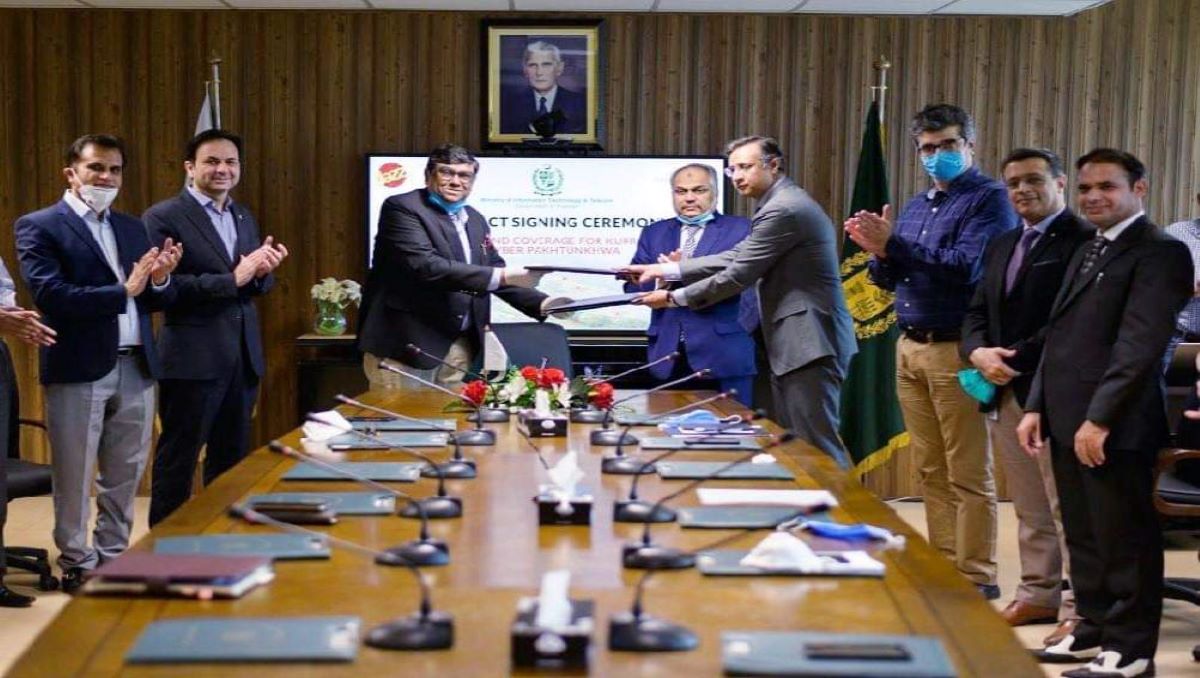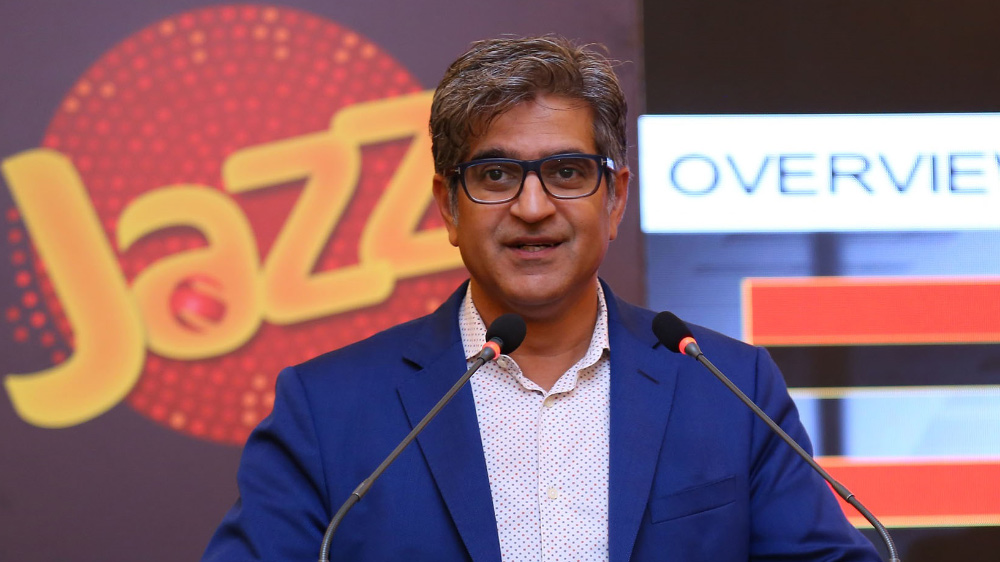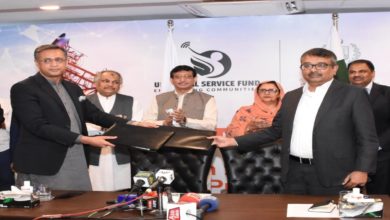USF: Bridging through the Digital Divide

As world a is moving towards the more digitized future with more and more on information and communication technology, internet access has increasingly recognized as an essential element for social and economic growth. The provision of essential services like healthcare, education, commerce and others now all rely upon modern ICT. Despite this growing usage and acceptance, acceptance, emerging countries are still struggling to find
affordable and sustainable ways to provide access to digital services to all.
The provision of essential services like healthcare, education, commerce and others now all rely upon modern ICT
Pakistan is one of the countries that is striving hard to overcome the digital divide by providing broadband service throughout the country, especially in remote areas. Pakistan like India, Malaysia, Morocco and Turkey has created successful ICT/broadband programs that serve thousands of citizens through creating universal service policies implemented through a dedicated organization, Universal Service Fund (USF).
The USF Concept
The fundamental concept of universal service is to ensure that telecommunication services are accessible to everyone.
The fundamental concept of universal service is to ensure that telecommunication services are accessible to everyone
There are three principal features behind this concept.
Availability:
The same level of service is available to everyone, everywhere, without geographical discrimination.
Affordability:
The price should not be a factor to limit access to services for all users.
Accessibility:
All subscribers should be treated in a nondiscriminatory manner, and quality service provision should be ensured in all places, without distinction of race, sex, religion, etc.
There is no hard and fast rule for USFs work. Typically, funds are collected through contributions made by telecom service providers. In most of the countries, these funds are raised in the form of a levy based on a percentage of annual operating revenues. Although in some countries USF fee is portioned from the overall regulatory fee, full or partial proceeds from spectrum auctions or licensing fee, direct contributions from government budgets, contributions from international agencies such as the World Bank, regional development banks, etc.
USF Pakistan
To promote telecommunication and spread the benefits of telecom revolution across the country, the Ministry of IT and Telecom established the Universal Service Fund in late 2016. The fund consists of contributions by the Telecom Operators. The MNOs contribute 1.5 per cent of their adjusted revenues whereas, the government offers no funding for USF. There is an independent Board of Directors equally balanced between four members from the government and four from the private sector.
The MNOs contribute 1.5 per cent of their adjusted revenues whereas, the government offers no funding for USF
While the CEO is the 9th director of the Board. All licensed operators contributing to USF are eligible to apply for all USF Contracts, including Special Projects.
All licensed operators contributing to USF are eligible to apply for all USF Contracts, including Special Projects
The contracts are awarded using “negative auction” where the bid for the lowest amount of subsidy wins the contract.
USF Achievements
The primary aim of USF is to spread ICT services to unserved and underserved areas of the country and help mobile operators to expand their services to far-flung areas. USF has distributed its focus areas into the following projects
- Broadband for Sustainable Development Program
- Next Generation – Broadband for Sustainable Development Program
- NG-BSD for National Highways & Motorways
- Optic fiber program
Besides these major ICT projects, USF has also initiated several special projects to make an impact at the grass-root level and empower the masses to take part in the ongoing digital revolution and transform their lives.
The special projects include the establishment of telecenters, introduction of services for people with disabilities, creation of computer labs in institutions and telemedicine networks, and ICT for Girls projects.
USF, in collaboration with service operators, has so far installed 1159 BTS in 7116 areas to provide telecom services to the unserved Mauzas across the country
USF, in collaboration with service operators, has so far installed 1159 BTS in 7116 areas to provide telecom services to the unserved Mauzas across the country while making the provision of 3G services compulsory. While at the same time, USF also ensured voice and broadband data services on the unserved patches on the National Highways and Motorways.
USF has connected 56 tehsils and 26 towns through 6447 km-long fiber optic cable network
A unique feature of NG-BSD for National Highways & Motorways program is National Roaming whereby a commuter gets continuous services in USF served areas, irrespective of their subscribed networks. USF has also connected 56 tehsils and 26 towns through 6447 km-long fiber optic cable network.
Room for improvement
Despite the government and private sector’s exhaustive efforts, teledensity in Pakistan remains less than 80% while 3G/4G penetration and broadband penetration remains 35% and 36% respectively. Pakistan is still at the bottom in the Global Connectivity Index and far behind other countries in digital innovation and entrepreneurship, which shows that Pakistan has still a long way to go. The efforts currently made by the government and the industry players are somehow still not enough. The USF Pakistan continues to collect funds from mobile operators for over a decade now. Still, its performance is in no way proportional to the digital revolution happening in the country now. Universal Service Fund needs to play a more active role in this whole revolution and better prepare for the future.
The USF Pakistan continues to collect funds from mobile operators for over a decade now. Still, its performance is in no way proportional to the digital revolution happening in the country now
There are several things that USF can do in this regard.
- USF should expand its responsibilities and structure its underlying legal and regulatory frameworks to ensure that policies and parameters can be modified quickly and effectively to accommodate the need for a new USF vision and respond to rapidly changing and evolving priorities.
- The overall concept of social and digital inclusion should not be overlooked. It should be ensured that no community, group or area lacks access to information and communication technologies. USF should not only work with private schools, colleges and universities, but it should collaborate with private sector institutions as well. In addition to that, hospitals, libraries, and government offices should also be upgraded through modern technology to ensure that far-flung areas of the country are also added in digital inclusion.
- Clear and well-defined goals should be set, and target should be achieved through transparency and visibility. Increasing transparency and accountability will improve commitment from all stakeholders.
- Besides providing accessibility to the telecommunication technologies, it is also essential to conduct targeted and comprehensive training and other educational programmes designed to ensure self-sufficiency in areas such as the operation of telecentres.
- More than anything else, USF needs to upgrade its financial mechanism. A growing number of governments want to ensure that the majority of the population has access to high-speed broadband at reasonable rates. To achieve that, the government needs to be more than just a watchdog. It should make financial contributions in the fund and access to national, regional or local infrastructure, rights of way, etc.
- USF should also team up with various relevant agencies and other social partners and stakeholders to engage in public education forums and other information dissemination measures. This will benefit the general population and promote understanding of the benefits of the various technologies.
The world is technologically moving ahead at a swift pace the creation of USFs has become an essential requirement to achieve universal access. But what is even more important is to expand and update the universal service policies beyond traditional telecommunication services and support ICT programs that propagate the use of modern technology as well.
Programs that feature a combination of PCs and other digital devices, broadband connections, and localized content and services can give citizens in even the most rural and remote regions access to better education, healthcare, social support, and economic opportunities
This way, emerging countries like Pakistan can reap enormous benefits and bring radical socio-economic change in the country. Programs that feature a combination of PCs and other digital devices, broadband connections, and localized content and services can give citizens in even the most rural and remote regions access to better education, healthcare, social support, and economic opportunities. USF is an excellent tool through which telecom operators and government can achieve the said goal. This will benefit the people but the government and operators in the long run as well. A win-win situation for all.
PTA Taxes Portal
Find PTA Taxes on All Phones on a Single Page using the PhoneWorld PTA Taxes Portal
Explore NowFollow us on Google News!





